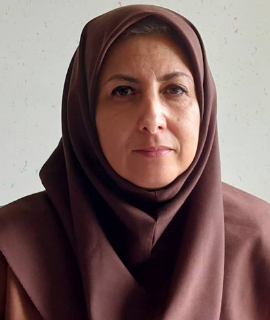Title : The complications of using assisted reproductive technologies on infertile couples health
Abstract:
Infertility is defined as the inability to become pregnant after at least a year of trying. Infertility affects an estimated 10–15% of couples of reproductive age globally. The number of couples seeking infertility treatment has increased considerably in recent years as a result of variables such as women postponing childbirth, the introduction of newer and more successful infertility treatment procedures, and increased public awareness of these available therapies. Regarding the economic conflict of interest in this field, policymakers, providers, and recipients of infertility treatment services must be warned about the numerous dimensions of its side effects.
Complications can be found in the physical, psychological, economic, and social sectors. Ovulation stimulation drugs can trigger anxiety, interruptions of sleep, and irritability in women but not in men. Other medications for infertility may cause issues such as depression, mania, irritability and difficulty in concentrating. Headache, dizziness, fatigue, insomnia, chest pain, mood swings, depression and anxiety symptoms, vaginal dryness, acne, joint pain and decreased sex drive in some women or abnormal cycle are some of the other side effects of these drugs. These treatments can reduce the satisfaction and sexual health of couples. Health insurance coverage varies and is not 100% effective. Therefore, the cost of infertility treatment is very high for couples and health systems. Couples who do not have insurance or the ability to pay for therapy may experience feelings of powerlessness and desperation if they do not obtain specialist care. Even people with insurance may discover that they have insufficient funds due to co-payments or may face coverage limitations. The lack of access to some specialized infertility treatments in low-income areas or their illegality in the place of residence makes couples bear the costs of traveling and staying in other countries, which will have economic and social consequences. In some countries, these couples face legal problems regarding custody or parenting processes. These will affect the social welfare of the couples.
Infertility prevention strategy such as having children on time, adequate infection treatment, a healthy lifestyle, reproductive health education for adolescents, and screening for endometriosis and PCOS will thus be critical. Preventing unrealistic advertisements for the use of assisted reproductive methods like gender selection, ignoring the tolerance of pregnancy in surrogacy, or having multiple pregnancies can be other strategies. Furthermore, thorough legislation for all infertility treatment methods in all nations is required.
Audience Take Away:
- Increasing the attention of reproductive health service providers to preventive measures for reproductive disorders
- Advocating for policies to cover treatment costs in health system
- Paying attention to reproductive health and sexual health education for teenagers
- Increasing attention to psychological care and social support for couples undergoing infertility treatments
- Adoption of laws to prevent abuse of treatment methods in unnecessary cases




